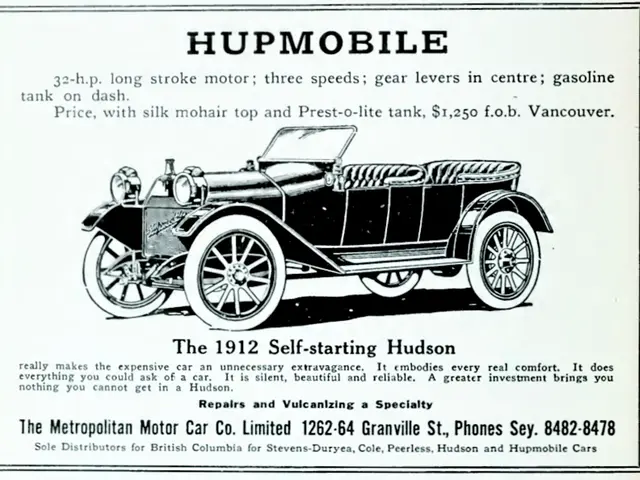Navigating the Automotive Supplier Storm: Bracing for Market Consolidation
Intense Competition Among Chinese Auto Suppliers: Survival of the Fittest at Stake - Growing Concerns Among Auto Manufacturers Due to Intensifying Competition from Chinese Car Suppliers
The automotive industry is shaking up, and its suppliers aren't far behind. A recent survey among executives of German automotive suppliers suggests that two-thirds of companies are anticipating a market consolidation within the next two years - which means suppliers might be on their way out. According to Baker Tilly, a renowned consulting and auditing firm, this looming threat is an inevitable consequence in the constantly evolving landscape.
Two-thirds of these executives expect fewer competitors in their market within the next two years. Only 20 percent anticipate new entrants, particularly from China, to join the race. The looming competition from Asia is already seen as a significant hurdle to overcome. Over half of those surveyed (51 percent) regard Asian companies as having an "unattainable lead" in key technologies.
The overall sentiment toward the industry is negative; 79 percent consider the situation "rather bad" or "very bad." However, it's a different story for their individual companies, with 78 percent describing their company's situation as "rather good" or "very good." "There seems to be a disparity," explains Jannik Bayat, an expert from Baker Tilly. "The industry appears to be aware of the risks, but it's not taking decisive action within its own ranks."
Cost and investment pressures loom heavy, with 56 percent of respondents naming them as a major challenge. Reliable planning is currently challenging due to geopolitical changes and potential trade conflicts (60 percent). Despite the challenges, 55 percent of those surveyed believe the window for the transformation of the industry is closing much sooner than initially thought.
A Future Beyond the Combustion Engine
Interestingly, most suppliers don't view the shift away from combustion engines as a threat to their business. 75 percent are confident that their business model remains largely independent of the change in drive technology, as the parts they produce are needed in both electric and combustion engine vehicles.
Relocations abroad seem unlikely, with only 17 percent of surveyed suppliers considering it necessary to maintain their competitiveness.
The Way Forward
Amidst this turmoil, German suppliers are focusing on strategic positioning and partnerships to navigate the competitive landscape. They're leveraging their expertise in advanced technologies, sustainable practices, and regional concentration (Baden-Württemberg, Bavaria, and North Rhine-Westphalia) to remain competitive and confront Asian rivals head-on.
The industry is keeping a close eye on the economic environment, with expectations of a gradual recovery supporting further M&A activity and strategic investments. Ultimately, the path forward requires effective management of post-merger integrations and cultural and operational challenges to ensure long-term success in the rapidly evolving auto supplier market.
The community is pondering over strategic positioning and partnerships as a means to confront the anticipated market consolidation within the automotive industry. To secure their competitive edge, they are leveraging their expertise in advanced technologies, sustainable practices, and regional concentration, while also keeping a close eye on the economic environment for potential opportunities in M&A activity and strategic investments.
Vocational training appears to be a crucial aspect of the long-term success strategy for these automotive suppliers, considering the constant evolution within the industry and the need to stay competitive against Asian rivals. Thus, investment in continuous vocational training programs could be pivotal in shaping the financial future and transportation solutions of these companies. Furthermore, collaborating with finance institutions could potentially aid in the facilitation of these training programs and fund other essential industry transitions, such as the shift away from combustion engines.








